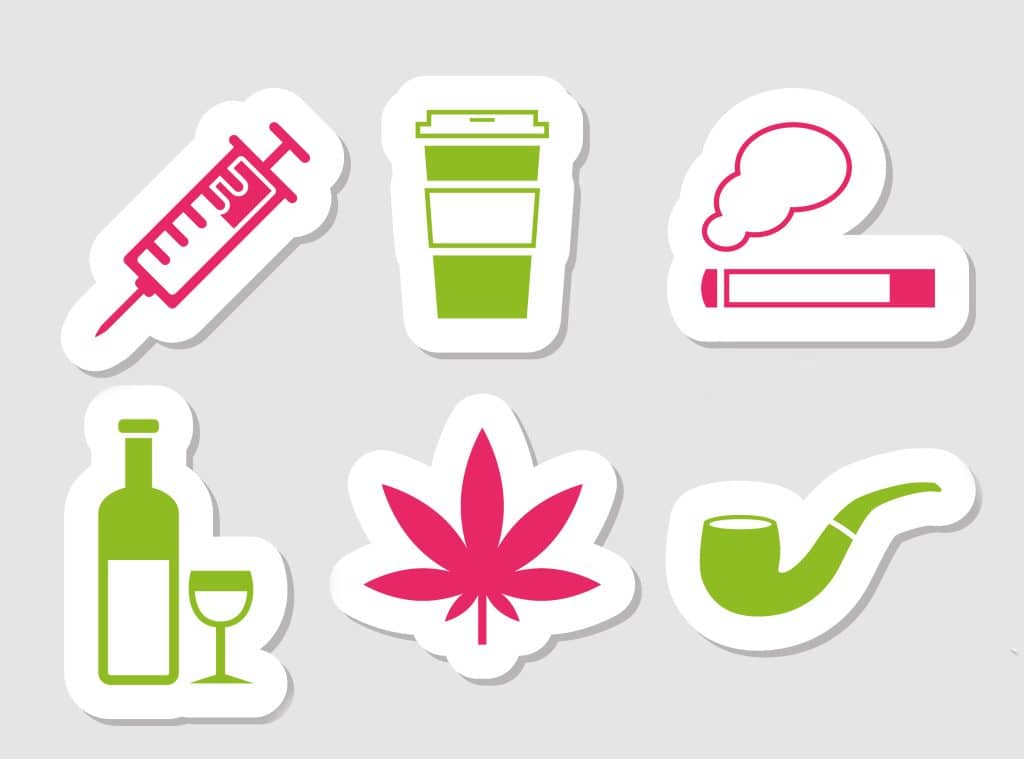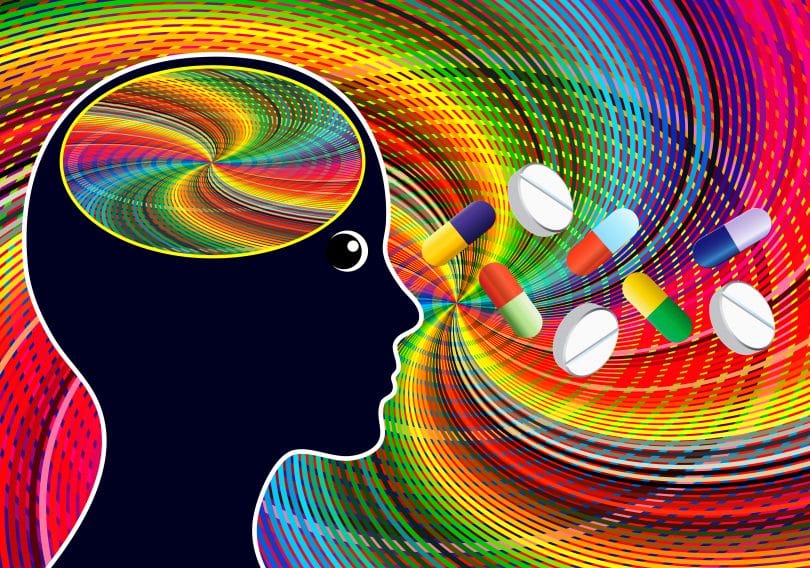If you read about drugs often (like I do), you’ve probably come across the terms “psychoactive” and “psychedelic” quite frequently. Although many publications use them interchangeably, that is incorrect and there are some key differences between the two. The broadest way to describe it, is that all psychedelic drugs are psychoactive, but not all psychoactive drugs are psychedelic. Let’s discuss further what separates the two.
Defining psychoactive drugs
Any drug that crosses the blood-brain barrier and changes the state of mind from baseline level can be defined as psychoactive. Also known as psychopharmaceuticals, psychoactive agents or psychotropic drugs, they change the way the nervous system functions, resulting in altered mood, perception, consciousness, cognition, and behavior.
These changes can be either beneficial or detrimental to the user, depending on the particular substance, dose, and what it’s being utilized for. Psychoactive substances can be used medically, recreationally, spiritually, or for research purposes. Groups of psychoactive drugs include stimulants, depressants, narcotics/opioids, hallucinogens, cannabis, and designer drugs. All illicit drugs are psychoactive, but some psychoactive substances that often slide under the radar also include caffeine, nicotine, and various pharmaceuticals.

There is archaeological evidence that psychoactive substances, mostly plants, have been used for at least 10,000 years. Although medicinal use is an important element here, some claim it’s strictly based on the cerebral effects and that the urge to alter one’s consciousness is “as primary as the drive to satiate thirst, hunger, or sexual desire”. Or in other words, the impulse to get high is natural and universal. Supporters of this theory point to children’s almost innate compulsion to swing, spin, and find ways to make themselves dizzy.
What are psychedelics?
Psychedelic drugs, or hallucinogens, are a class of substances which contain compounds that can alter perception. They are also commonly referred to as “entheogens”, although that term is now more frequently associated with hallucinogenic plants. Regardless, the word entheogen is Greek in origin and can be roughly translated to mean “building the God within”, and the high produced by these drugs (known as a “trip”) can be very spiritual and mind-expanding in nature.
Psychedelic trips include various types of visual, auditory, and sensory hallucinations. The intensity of a trip can vary dramatically based on the specific compound and dose consumed. Sometimes, a user will experience no hallucinations at all, but rather a sense of general well-being, spirituality, and euphoria. Dosing and setting, among other factors, can significantly impact a psychedelic trip, so you want to make sure that you’re doing everything possible to guarantee an uplifting and beneficial high.
Psychedelics can be naturally-derived like psilocybin, or manmade like ketamine. Both natural and synthetic hallucinogens are generally regarded as safe. According to the results of a Global Drug Survey that polled 120,000 regular drug users, magic mushrooms were the safest recreational drug, along with cannabis. Their method at determining user safety was by comparing the drug used to the amount of required emergency room visits. Only 0.2% of the nearly 10,000 mushroom users surveyed had ever required emergency care, compared to the 1.0% of those using harder drugs like ecstasy or cocaine.
Furthermore, a growing body of research has found that certain psychedelic substances can help relieve anxiety, depression, PTSD, addiction and numerous other mental health disorders. “The biggest misconception people have about psychedelics is that these are drugs that make you crazy,” says Michael Pollan, author of the new book How to Change Your Mind: What the New Science of Psychedelics Teaches Us About Consciousness, Dying, Addiction, Depression, and Transcendence. “We now have evidence that that does happen sometimes — but in many more cases, these are drugs that can make you sane.”
Most psychedelics are serotonergic, meaning they act on our serotonin receptors to produce effects. However, a handful of psychedelics work via different mechanisms, such as muscimol in amanita muscaria mushrooms which interacts with certain opioid receptors, yet still produces dissociative and hallucinogenic effects.
Thank you for stopping in. Head over to the Cannadelics Weekly Newsletter for direct updates; and get access to awesome deals on cannabis buds, vapes, edibles, smoking devices and equipment, cannabinoid compounds (HHC, delta-8), and so much more cool stuff. Go get stoned responsibly!
Why it matters
Although many people would rate themselves as good communicators, according to various studies and surveys, roughly 75-81 percent of communications are misinterpreted. This is why words are so important, and why it’s imperative that you give as much factual, relevant detail as possible when you are trying to convey a message.
This is especially true in the world of drugs. When explaining what a substance is, what it does, and how it acts in the human body, you want to be as specific and correct as possible. There could be irreparable consequences when someone muddles information pertaining to substances that could be deadly when used incorrectly.
That being said, mixing up “psychoactive” and “psychedelic” is not quite so problematic, but it can lead to a lot of confusion, especially among inexperienced recreational users. Not to mention, if you’re in the industry and using important words incorrectly, it can come across as unprofessional.
Final thoughts
To quickly recap, all psychedelic drugs are psychoactive, but not all psychoactive drugs are psychedelic. Psychoactive drugs alter mood and perceptions in a large variety of different ways, whereas psychedelic drugs work specifically by producing visual, auditory, and sensory hallucinations.
Thanks for making your way over! We appreciate you stopping in at Cannadelics.com; where we work to bring you the best in independent news coverage for the cannabis and psychedelics spaces. Visit us regularly for daily news injections, and sign up to the Cannadelics Weekly Newsletter, so you’re always on top of what’s going on.









